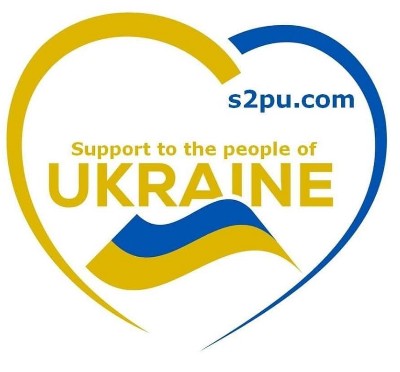Congresswoman Marcy Kaptur, Ninth Congressional District of Ohio
November 7, 2015
Thank you Michael. Mrs. Poroshenko you honor us by your presence today. Mr. Severin we bow before you. Thank you for your noble life. To all esteemed guests here today and religious leaders, and to my dear friend Congressman Sander Levin of Michigan, thank you for the personal invitation to join you at this unforgettable momentous event. Thank you for the years it took to achieve this great memorial.
It is appropriate today that we gather in our nation’s capital, a city marked by symbols of liberty and our most sacred monuments. To freedom-lovers everywhere, these enduring sites make permanent what is most precious to us. We do this to encourage the people of our nation and all nations to honor history. Monuments are lights illuminating humanity’s path forward.
More rare are the monuments to events so tragic and singular that we know in our hearts that we must never ever forget them. They help us turn grief into conviction so that we never forget the hard lessons learned. Today we mark the anniversary of the birth of such a monument, an indelible marker that will outlive us. Generations to come must not forget the murderous and inhuman violence of Ukraine’s Holodomor genocide during the Soviet regime.
The Holodomor was unprecedented in recorded history. Millions of Ukrainians of all confessions were condemned by Josef Stalin to die by starvation at the hands of a brutal and repressive Soviet government. For decades, this profound massacre was denied its rightful place in history. Our nation, too, failed to recognize and respond to that brutality, a wrong that by our presence here today we continue to right.
In 1985, as a junior Member of Congress, I was privileged to co-author the legislation to create the Holodomor Commission to document the forced starvation of untold millions of Ukrainians at the hands of the Soviet Union. And in 2002, I proudly lent my strong support to Congressman Levin’s effort to construct the monument for which we are assembled today. And then last December, we were united in our support of passage of the Ukraine Freedom Support Act to meet the aggression that currently has invaded Ukraine, threatening her sovereign territorial integrity.
Our own family’s maternal grandparents emigrated to America from what is Ukraine today in the early 20th century, penniless and seeking sustenance, as the post-World War One Bolshevik Revolution drove peasants into oblivion, unable to survive. However, as I discovered 60 years later, our great uncle was unable to escape and was forced to spend 20 years in the Soviet gulag where his brother died. The village of their childhood was transformed forever by the Holodomor. As one cousin related to me, her horrible memories of crawling on the ground in the winter of 1932-33 scratching the frozen soil with her fingernails trying to find a single onion to make soup for her family.
This historical event is deeply personal for me as well. But it is one of which the American people have little knowledge since so many who could have lived to tell the story perished. So today we honor those who perished and we remember those who fought and died, and fight today, for liberty.
The century-long Ukrainian longing for liberty has flowered in our own time, and I see it in the faces of the young people in Ukraine as a travel there. It is a new day for Ukraine, and the Ukrainian people have walked toward liberty for a long time. Their passion for freedom and self-determination reminds me of America’s fight for independence 250 years ago. It is a passion that burns white hot. We have seen it repeatedly in recent years in the Orange Revolution and again at Euromaidan. You cannot conquer the spirit of a people who refuse to kneel. And this, this is the spirit of Ukraine. The people’s undying drive to liberty has foiled and infuriated tyrants time and again. And it will do so now.
This monument ensures that the memory of the Holodomor Genocide, lives on. This monument alerts future generations about the cost of liberty and the fight for it, and against allowing oppressive regimes to rule over any people. The value of such a memorial should not be underestimated. It reminds us of our own history. It helps us educate and inform generations to come. And it serves as a daily reminder of the despicable deeds of totalitarian regimes that ultimately collapse under the weight of their own moral corruption.
In closing, in his book Bloodlands, Dr. Timothy Snyder, who was born in the Buckeye State of Ohio, describes the tragic sacrifice of the millions upon millions of people who were forcibly starved to death in the Holodomor genocide. He says, “The good people died first. Those who refused to steal or to prostitute themselves died. Those who gave food to others died. Those who refused to eat corpses died. Those who refused to kill their fellow man died. Parents who resisted cannibalism died before their children.” This was not an act of God, but of politics and therefore of humanity.
Today, three-quarters of a century later, our country, a former ally of Stalin’s regime, in the complexities of the 20th century, is working to right the historical record. In this act of the remembering of truth, we show our commitment to the spiritual admonition, “You will know the truth, and the truth will make you free.” Today we seek to make America more free as well, even from the long shadow of our darkest alliances. That is why we have gathered here in our nation’s capital at the monument to the Holodomor genocide: to remember and honor noble sacrifice, and face that evil which man hath wrought; to make certain it will not happen again and that those who come after us will never, ever forget.
God bless you all.
(52:06 - 1:02:41 - https://youtu.be/WJEPXRGy6GU?t=52m6s)
